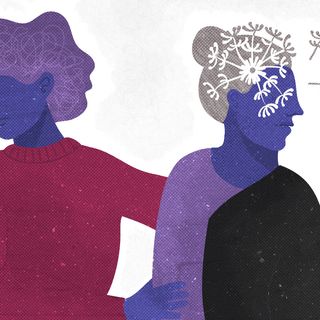
Can Cannabis Products Help Mental Health Disorders? Evidence Is Inconclusive, Review Finds
Researchers warn the cult mental health following behind cannabis products doesn’t justify its clinical use.

A new, large-scale review of research into whether medicinal CBD oil, cannabis, and other cannabinoid products can help mental health has concluded there is “scarce evidence” to support claims of benefits.
Cannabis products — substances derived from marijuana, not all of which contain the plant’s high-inducing chemicals — have gained popularity of late, as several countries have moved to decriminalize them. CBD (cannabidiol) oil, a processed extract of cannabis that does not cause a high, has particularly gained an online cult following for aiding anxiety and related disorders. But anecdotes of mental health benefits are not the same as rigorous, scientific analysis.
“Cannabinoids are often advocated as a treatment for various mental health conditions,” Louisa Degenhardt, of the National Drug and Alcohol Research Centre at the University of New South Wales, in Sydney, Australia, said in a press release announcing the research. Degenhardt is a lead author of the study, which was published in the journal The Lancet Psychiatry. “Clinicians and consumers need to be aware of the low quality and quantity of evidence for the effectiveness of medicinal cannabinoids in treating mental health disorders and the potential risk of adverse events.”
Related on The Swaddle:
Untrending: CBD Oil Is Not a Cure‑All
These risks could include the worsening of mental health conditions: the one area in which researchers do have a large body of evidence is the proven link between non-medical-grade cannabis use and increased depression, anxiety, and psychotic symptoms. It’s unknown whether that link is due to impurity of product or simply to the effects of cannabis.
The conclusions of the recent meta-analysis rest on analyses of 83 studies, involving 3,000 adults, which looked into the effects of cannabis products on six mental health disorders: depression, anxiety, attention-deficit hyperactivity disorder (ADHD), Tourette syndrome, post-traumatic stress disorder (PTSD), and psychosis. Roughly half of the studies were randomized control trials, a highly rigorous method of experimentation that enables researchers to draw conclusions, not just identify correlations.
Across the board, the researchers found insufficient evidence that medical-grade cannabis products alleviate these disorders or their symptoms. They did find low-quality evidence that suggested a tenuous link between medicinal THC (that is, tetrahydrocannabinol, the compound in cannabis responsible for most of its psychotropic effects) and improved anxiety symptoms in 252 people using cannabis products to treat other medical conditions, but could not determine whether improved anxiety was an effect of the THC or the result of improved health.
However, study authors say their findings are not the final word on the efficacy of cannabis products for mental health treatment. They stress that the dearth of study, particularly high-quality experimentation, is a gap the medical research community should address going forward. More and more rigorous research could well upturn their conclusions. But until that’s available, the study concludes on a note of caution: “There remains insufficient evidence to provide guidance on the use of cannabinoids for treating mental disorders within a regulatory framework,” the authors write.
“The process of drug development in modern medicine is to first demonstrate efficacy and safety in clinical trials before using the drug clinically. With cannabinoids, it seems that the cart (use) is before the horse (evidence),” writes Deepak Cyril D’Souza, of the Yale University School of Medicine, in the U.S., in a commentary that accompanied the study in The Lancet Psychiatry.
Liesl Goecker is The Swaddle's managing editor.
Related


Report: The Healthier We Eat, the Better It Is for the Environment
